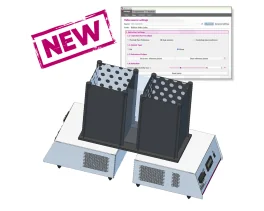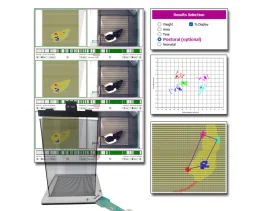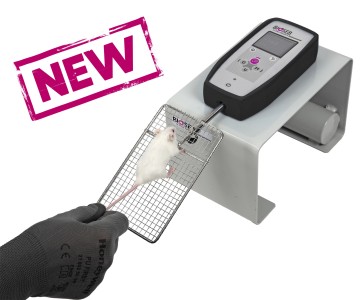Authors
Y Kishimoto, W Zhu, W Hosoda, JM Sen, MP Mattson
Lab
Johns Hopkins University School of Medicine, Baltimore, USA
Journal
NeuroMolecular Medicine
Abstract
Emerging findings suggest that ParkinsonÕs disease (PD) pathology (_-synuclein accumulation) and neuronal dysfunction may occur first in peripheral neurons of the autonomic nervous system including the enteric branches of the vagus nerve. The risk of PD increases greatly in people over the age of 65, a period of life in which chronic inflammation is common in many organ systems including the gut. Here we report that chronic mild focal intestinal inflammation accelerates the age of disease onset in _-synuclein mutant PD mice. Wild-type and PD mice treated with 0.5% dextran sodium sulfate (DSS) in their drinking water for 12 weeks beginning at 3 months of age exhibited histological and biochemical features of mild gut inflammation. The age of onset of motor dysfunction, evaluated using a rotarod test, gait analysis, and grip strength measurements, was significantly earlier in DSS-treated PD mice compared to control PD mice. Levels of the dopaminergic neuron marker tyrosine hydroxylase in the striatum and numbers of dopaminergic neurons in the substantia nigra were reduced in PD mice with gut inflammation. Levels of total and phosphorylated _-synuclein were elevated in enteric and brain neurons in DSS-treated PD mice, suggesting that mild gut inflammation accelerates _-synuclein pathology. Markers of inflammation in the colon and brain, but not in the blood, were elevated in DSS-treated PD mice, consistent with retrograde transneuronal propagation of _-synuclein pathology and neuroinflammation from the gut to the brain. Our findings suggest that interventions that reduce gut inflammation may prove beneficial in the prevention and treatment of PD.
BIOSEB Instruments Used
Grip strength test (BIO-GS3)
Keywords/Topics
Maladie de Parkinson; Neurodégénérescence
Source :
https://link.springer.com/article/10.1007/s12017-019-08539-5

 Douleur - Allodynie/Hyperalgésie Thermique
Douleur - Allodynie/Hyperalgésie Thermique Douleur - Spontanée - Déficit de Posture
Douleur - Spontanée - Déficit de Posture Douleur - Allodynie/Hyperalgésie Mécanique
Douleur - Allodynie/Hyperalgésie Mécanique Apprentissage/Mémoire - Attention - Addiction
Apprentissage/Mémoire - Attention - Addiction Physiologie & Recherche Respiratoire
Physiologie & Recherche Respiratoire




































 Douleur
Douleur Système Nerveux Central (SNC)
Système Nerveux Central (SNC)  Neurodégénérescence
Neurodégénérescence Système sensoriel
Système sensoriel Système moteur
Système moteur Troubles de l'humeur
Troubles de l'humeur Autres pathologies
Autres pathologies Système musculaire
Système musculaire Articulations
Articulations Métabolisme
Métabolisme Thématiques transversales
Thématiques transversales Congrès & Meetings 2026
Congrès & Meetings 2026 